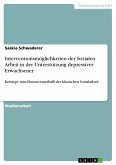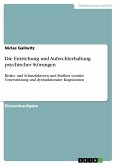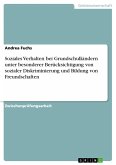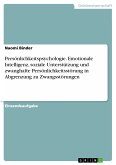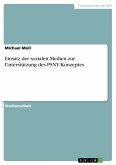Wissenschaftliche Studie aus dem Jahr 2011 im Fachbereich Psychologie - Sozialpsychologie, Note: 1.0, Albert-Ludwigs-Universität Freiburg, Veranstaltung: Experimentalpraktikum, Sprache: Deutsch, Abstract: Recent findings indicate that evaluation situations, such as a self-presentation in front of others, in which we perceive the social-self as threatened, lead to stress and psychological stress responses such as a lowered self-esteem (Gruenewald, Kemeny, Azid & Fahey, 2004). According to a study by Ditzen et al. (2008), social support can buffer the negative subjective effects of a standardized psychosocial stressor. The aim of the present study was to investigate the effectiveness of social support in a stressful situation on self-esteem. Methods: 127 subjects were confronted with the Trier Social Stress Test for Groups (TSST-G) (von Dawans, Kirschbaum & Heinrichs, 2010). While preparing for the stressful situation, half of the subjects were randomly assigned to either receive social support or not. Self-esteem was measured using a German version of the State Self-Esteem Scale (Rudolph, Schütz, & Schröder-Abé, 2008). Results: Social support increased overall self-esteem and the two self-esteem subaspects performance and social self-perception. No correlations between how helpful and calming the social support was perceived and the self-esteem were found, but a significant negative correlation between how confusing the social support was perceived and self-esteem emerged. Discussion: Results indicate that, in comparison to handle a stressful situation alone, social support buffers the social threat apperception and secures one`s self-esteem perceptions. Several limitations of this study are discussed.
Dieser Download kann aus rechtlichen Gründen nur mit Rechnungsadresse in A, B, BG, CY, CZ, D, DK, EW, E, FIN, F, GR, HR, H, IRL, I, LT, L, LR, M, NL, PL, P, R, S, SLO, SK ausgeliefert werden.





